Stefan Baumgartner
Eternal Sunshine of the Spotless Programming Language
#1about 2 minutes
Understanding the original design goals and evolution of C++
C++ was created to improve upon C with better static type checking and support for large-scale programming through user-defined types.
#2about 4 minutes
How Java and Go emerged to address C++ limitations
Successor languages like Java and Go were created to solve specific C++ frustrations like manual memory management and slow build times.
#3about 8 minutes
Modern C++ evolution and the burden of backward compatibility
While modern C++ has adopted features similar to Rust, its commitment to backward compatibility creates significant technical debt that prevents removing outdated features.
#4about 4 minutes
Defining shared behavior across types with Rust traits
Rust traits provide a powerful way to define shared behavior, similar to interfaces, but can also be implemented for types you don't own.
#5about 6 minutes
Extending core language syntax and features with traits
Traits are the mechanism for implementing core language features like operator overloading, allowing custom types to integrate seamlessly with Rust's syntax.
#6about 6 minutes
Achieving composition over inheritance with the newtype pattern
By wrapping an existing type in a new struct (the newtype pattern), you can implement custom trait behavior to favor composition over complex inheritance hierarchies.
#7about 5 minutes
Simplifying error handling with custom error types and traits
Creating custom error enums and implementing conversion traits like `From` allows for clean, centralized error handling using the question mark operator.
#8about 9 minutes
A practical example of refactoring code using custom types
A web handler is refactored by creating custom response types and implementing conversion traits, making the code more readable, reusable, and type-safe.
#9about 1 minute
How the Future trait enables a flexible async ecosystem
Rust's `async/await` syntax is built upon the `Future` trait, which allows different third-party runtimes to provide the execution logic.
#10about 15 minutes
The power and limitations of using traits for language design
Traits are the central construct for evolving Rust by adding new features without introducing breaking changes, though they can lead to complex error messages.
Related jobs
Jobs that call for the skills explored in this talk.
tree-IT GmbH
Bad Neustadt an der Saale, Germany
€54-80K
Intermediate
Senior
Java
TypeScript
+1
Hubert Burda Media
München, Germany
€80-95K
Intermediate
Senior
JavaScript
Node.js
+1
Matching moments
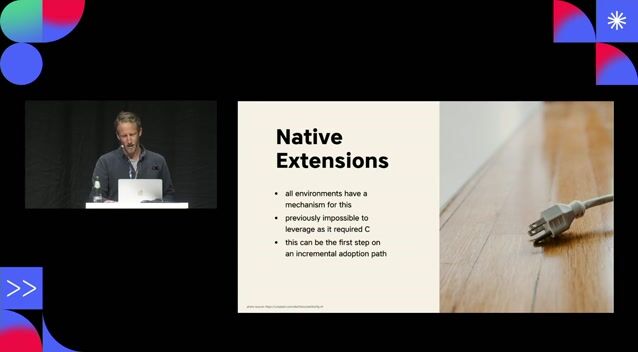
01:46 MIN
The future of Rust in modern web development
Get ready to Rustle

05:39 MIN
Q&A on Rust, `instanceof` alternatives, and `ts-reset`
Lies we Tell Ourselves As Developers

08:47 MIN
Q&A on language design, Rust, and the future of C++
The Design and Evolution of C++

09:43 MIN
Why Rust is gaining so much developer attention
WeAreDevelopers LIVE - Should We Respect LLMs? Is Rust Taking Over? Developers as Content Creators and more

08:20 MIN
Building custom types with structs and traits
A Love Letter to Rust

02:41 MIN
Why developers should consider learning Rust now
Coffee with Developers - Francesco Ciulla

06:52 MIN
An introduction to Rust's core language features
Get ready to Rustle

04:49 MIN
Why Rust is so popular with developers and companies
A Love Letter to Rust
Featured Partners
Related Videos
 50:43
50:43A Love Letter to Rust
Rainer Stropek
 31:20
31:20Get ready to Rustle
Marco Otte-Witte
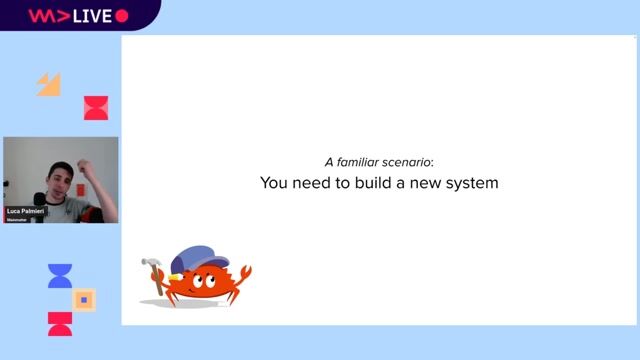 47:35
47:35Reasoning about Rust: an introduction to Rustdoc's JSON format
Luca Palmieri
 55:29
55:29Crafting Custom Frameworks with Rust: A Deep Dive into Procedural Macros
Mykhailo Maidan
 13:14
13:14Coffee with Developers - Francesco Ciulla
Francesco Ciulla
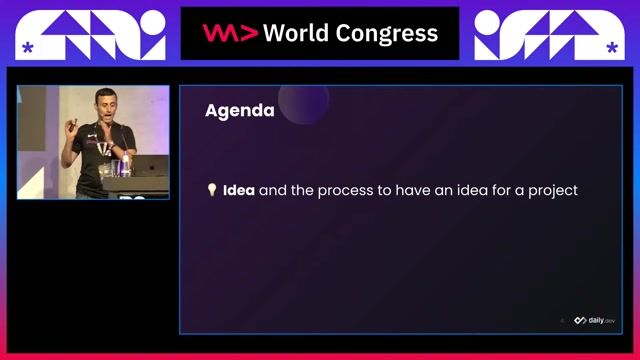 25:56
25:56Rust and Docker: Let's build an AI-powered app!
Francesco Ciulla
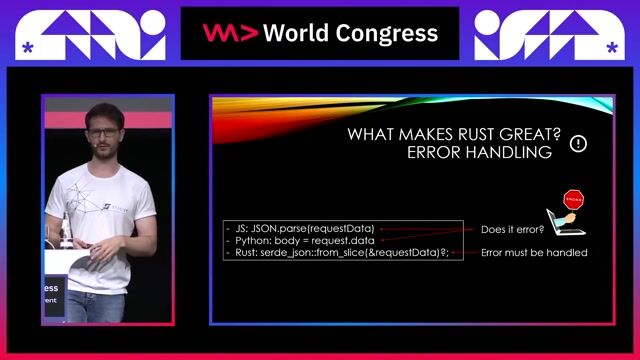 30:10
30:10Rust Beyond Systems: Revolutionizing Web Development
Patrick Koss
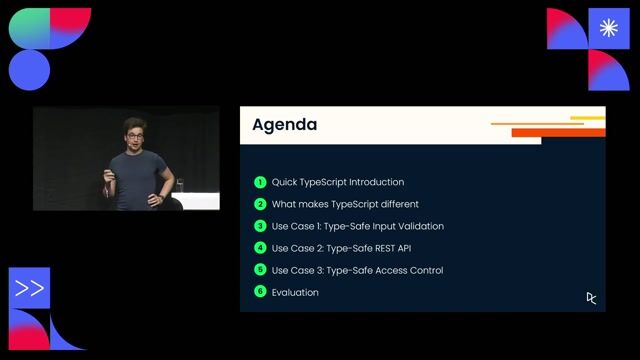 29:44
29:44Don't compromise on speedy delivery nor type-safety by choosing TypeScript
Jens Claes
Related Articles
View all articles



From learning to earning
Jobs that call for the skills explored in this talk.


BairesDev
Berlin, Germany
Remote
Senior
Rust
Kubernetes
Microservices
Machine Learning

BairesDev
Berlin, Germany
Remote
Intermediate
Rust
Kubernetes
Microservices
Machine Learning



Fraunhofer-Gesellschaft
Erlangen, Germany
C++
Python
Docker
Android


